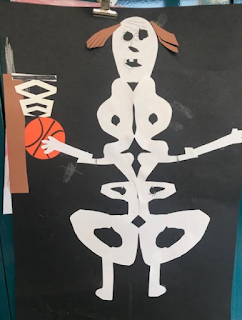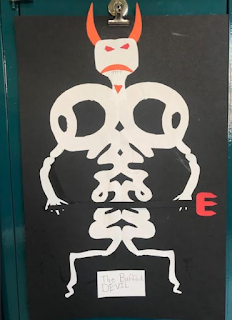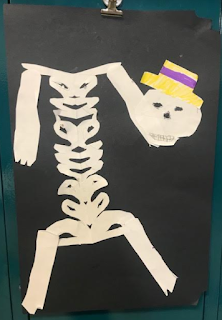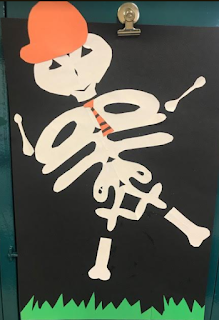-We started by putting our writing into sections so that we could paragraph, as well as make revisions easier.
-We then talked about what makes a reader want to read your story, and had students come up with a list of ways authors hook the reader. Our writers then went about writing three new beginnings for their stories, then chose the best one. They are always amazed at how much better they get at writing better beginnings once they get to the last one.
-We also had lessons on the use of Figurative Language such as Similes, Metaphors and Personification, and how they make stories more descriptive.
-Then students helped create a list of other ways to convey emotion or action in a story by replacing the word SAID. We came up with enormous lists of other words to use, so they went into their stories and found spots where they could replace said with "juicier words".
-Next we will work on new endings, as well as learn to Rainbow Edit for convention and grammar errors.
Check out some of our great work...











































